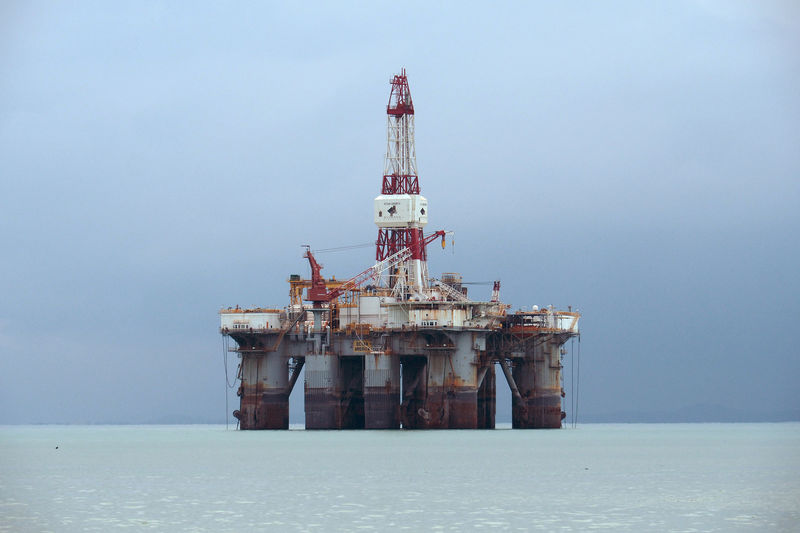By Roslan Khasawneh and John Geddie
DUBAI/SINGAPORE (Reuters) - A tanker of Iranian fuel oil was sitting offshore Malaysia, ship tracking data on Refinitiv Eikon showed, as a top U.S. sanctions official visiting Singapore on Friday urged local governments to comply with oil trading restrictions on Iran.
The U.S. government reintroduced sanctions against Iran's oil industry in November. While it still allows some buyers limited purchases of Iranian crude oil, petroleum products have not received official sanctions waivers.
Reuters reported on March 20 that some Iranian fuel oil made its way into a storage terminal in Singapore via ship-to-ship transfers using four tankers and by using forged documents that masked the cargoes as Iraqi.
One of the ships, the Marshal Z, which is capable of carrying up to 150,000 tonnes of oil, took Iranian fuel oil from a tanker offshore the United Arab Emirates and later transferred its cargo to another tanker, the Libya, offshore the Malaysian port of Malacca in February, the report said.
However, both ships later returned to the waters off Malacca, where the Marshal Z took back the fuel oil, the ship-tracking data showed.
The draught, or how deep the vessel sits in the water, for the Marshal Z increased to 15.9 meters (52 feet) on March 22 from 9 meters on March 20, indicating it filled its tanks. At the same time, the Libya's draught dropped to 9.3 meters from 15.2 meters, the data showed.
The Marshal Z remains anchored in waters about 24 km (15 miles) off the coast of southeastern Malaysia while the Libya is sailing through the Straits of Malacca bound for Fujairah in the UAE, the data showed.
Reuters has not been able to determine the owners of the Marshal Z.
"With all the attention on it (the Marshal Z) now, whoever's got this boat is trapped in limbo now," said John Driscoll, director of consultancy JTD Energy, on Thursday.
"They're caught in the crossfire of oil politics and floating the oil for so long will keep the meter running with thousands of dollars each day in operational and opportunity costs."
One of the U.S. government's top sanctions officials Sigal Mandelker said on Friday in Singapore that she has been raising the issue of illicit Iranian oil shipments in meetings with Malaysian and Singaporean officials this week.
"Part of our focus here in this region has been the sanctions evasion tactics that the Iranians have been using," Mandelker, the U.S. Under Secretary of the Treasury for Terrorism and Financial Intelligence, told media in the city-state.
She said the talks were to make sure Malaysian and Singaporean authorities "are alert and make important decisions about whether or not to even allow the vessels to come through their waterways."
"It's very important these countries have...visibility into the different ways the Iranian regime uses to deceive the international community in connection with the shipment of oil," she said.
Mandelker said she would hold meetings with Singapore's home, finance and trade ministry on Friday.
The Libya is owned and managed by Tripoli-based General National Maritime Transport Company (GNMTC). The company did not respond to an emailed request sent on March 24 for comment on the most recent ship-to-ship transfer with the Marshal Z.
A GNMTC spokesman had previously told Reuters the company "was not aware, at any stage that the cargo is linked in any way to Iran."
A representative for Singapore-based oil trading company Blutide, which chartered the Libya, did not immediately reply to emails and phone calls on Friday seeking comment.
